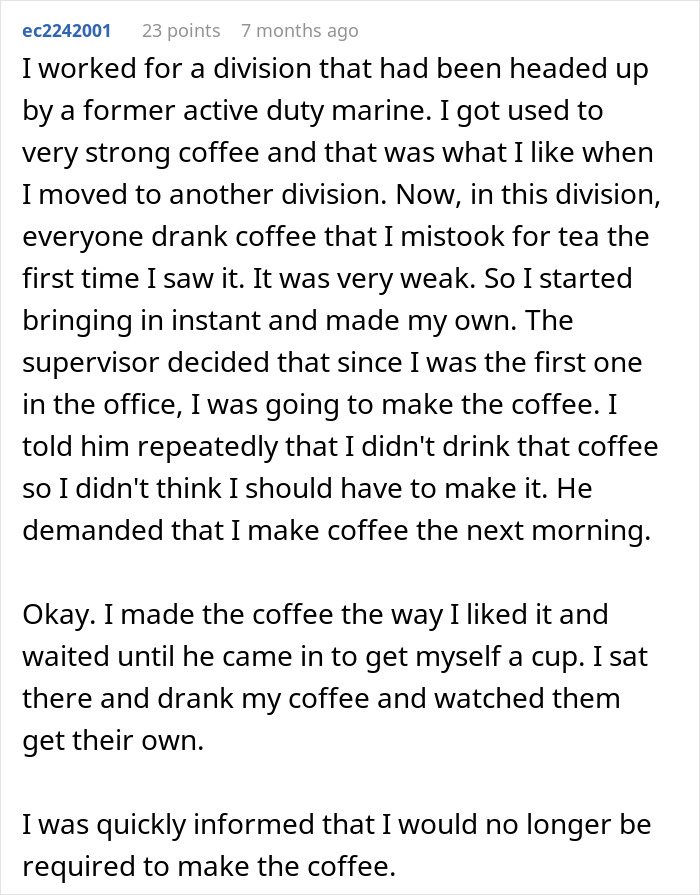Having a cup of coffee at work might seem like a simple concept – until you become responsible for everyone’s fix.
In a post on the popular subreddit ‘Malicious Compliance,’ platform user SarraSimFan recalled the time when she found herself unexpectedly tasked with operating the office coffee maker despite having no experience with or interest in the drink.
After asking one of the seasoned vets for help, however, the employee didn’t receive much, so she decided to follow through with her new responsibility and let people know who they were relying on. Let’s just say they tasted the difference.
Coffee is an important resource for many workplaces

Image credits: Chevanon Photography (not the actual photo)
So when this employee, who is not a fan of the drink, was named the office brewer, she was reluctant to take the position

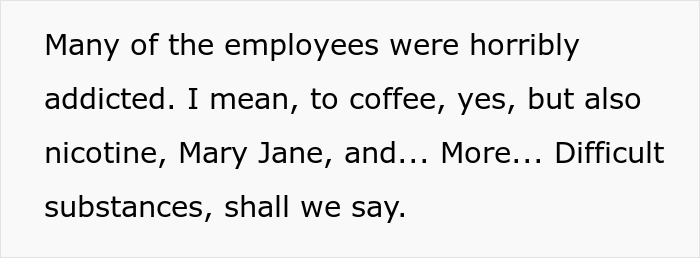



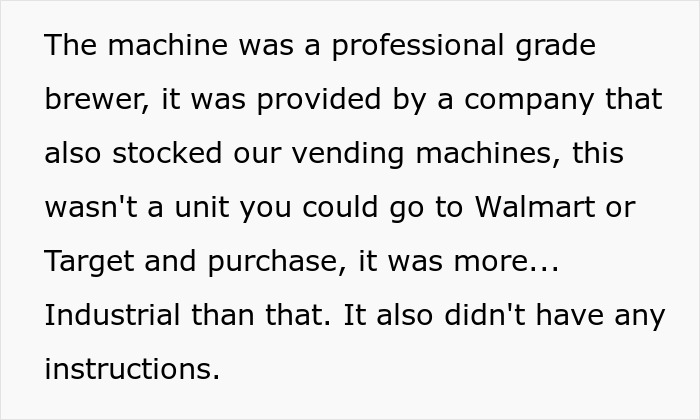
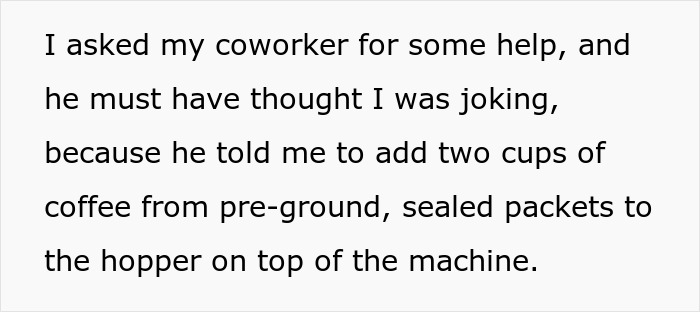
Image credits: cottonbro studio (not the actual photo)



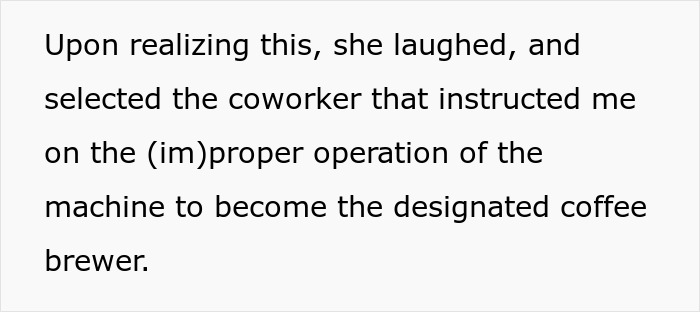

Image source: SarraSimFan
Small gestures can make a big difference, but was the author of the post the right person for the job?

Image credits: Kampus Production (not the actual photo)
According to Darren Shimkus, who has over two decades of experience in building and growing sales, marketing, and product management teams, going beyond your job description doesn’t go unnoticed.
“We all know that sinking feeling when you go for a caffeine fix before a meeting only to hear the wet gurgle of an empty carafe,” he wrote in Forbes. “It is annoying, and it signals that someone on the team poured him or herself a cup of coffee, put down an empty carafe, and walked away without considering the next person.”
“Little things have a cascading effect on others. When someone leaves that symbolic empty coffee pot, their unspoken message is, ‘My time is more valuable than yours, and I’m too important for mundane tasks.'”
“It’s not just about coffee,” he added.
Contributing to the general office needs, even if they seem mundane, helps develop the company’s culture. Shimkus believes that you start with coffee, but it soon snowballs into other duties: Who takes the meeting notes? Who sets up the conference to welcome the new client? Who straightens the room when they leave? Who organizes the monthly team birthday card? Who greets other people with eye contact and real attention and asks how’s their day?
“Look for opportunities to perform small acts of kindness and consideration, and I guarantee you’ll develop stronger, more positive relationships and even feel better about yourself, too,” he suggested.
However, setting someone up for failure, particularly with a task that has a steep learning curve, can be counterproductive. So while some probably could argue that SarraSimFan could’ve demonstrated more initiative, an equally if not more compelling case could be made in favor of more effective delegation.
As her story went viral, the employee provided more context in the comment section



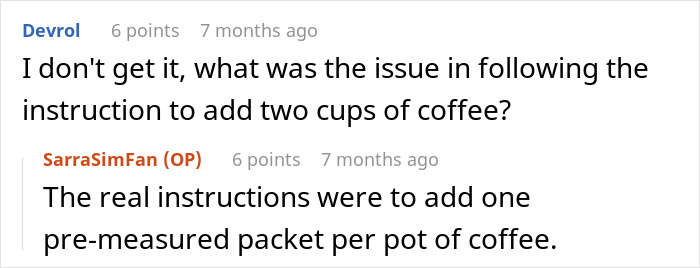
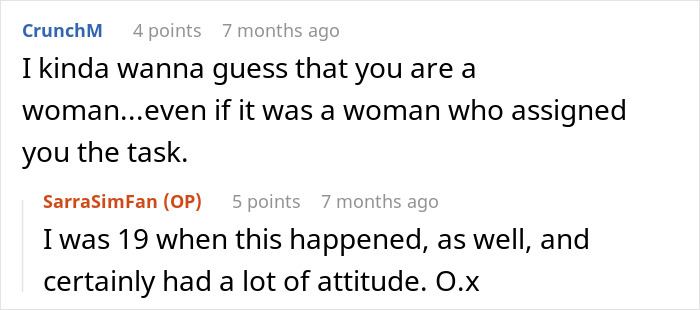

People have had a lot of different reactions to the whole thing
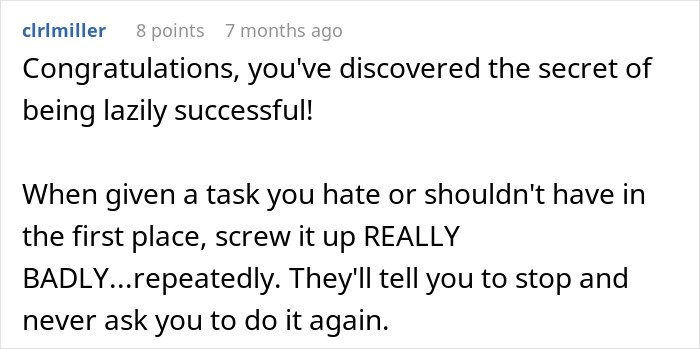




And some got inspired to share their own similar experiences


